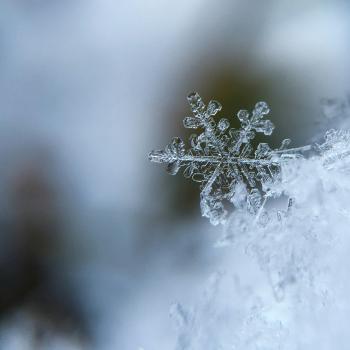As Star Foster said many months back, polytheism is one of the few things that modern Paganism can be said to "own" almost exclusively; but, for too many, it seems like the funny old lamp inherited from our great-grandparents that we hide in the basement when the guests come over.
I am beginning to understand, more and more, the reason why many modern polytheists have chosen to distance themselves from the term "Pagan," since polytheism most certainly involves gods (and lots of them!), whereas many modern forms of Paganism seem bound and determined to define their religiosity in every way apart from honoring, reverencing, or (horror of horrors!) worshipping a number of gods.
As I've indicated already, polytheists are not monotheists, but, I would argue, neither are they monists. This is why I no longer use the phrase "the Divine" in talking about modern Paganism or polytheism. This may be more a question of semantics in many people's minds, and if that's the case that's fine. Still, the phrase "the Divine" does not, for me, describe the reality of the gods as I have come to know them, nor does it usefully and accurately translate the element theos in a term like "theology." Ancient Greek used theos as singular and plural (both "god" and "gods"), as masculine and feminine (both "god/s" and "goddess/es"), and as a noun or as an adjective (both "god" and "godly"), so one can choose whatever option fits the purpose when using this term.
However, the multivalence of theos is inclusive rather than exclusive. When I hear people limiting theos to the adjectival usage (which is based in a discrete category of nouns), I start to get worried. The adjectival usage is not entirely appropriate to polytheism, in my view. The noun-based usage relies upon a more definite category of "thing," a thing that is both subject and object, being and agent, individual and collective—all things that distinguish polytheism from monotheism and monism, in my opinion. The gods are not just descriptions of something else, they're things in themselves. While it might also be interesting to explore the understanding of gods as verbs rather than nouns or adjectives, that may be getting too far off track for the present!
But in any case, the limitation of the definition of theos in this instance is of some concern to me. It ends up sounding like a way to avoid alienating potentially hostile listeners; and, for me, it does so at the expense of truth. If there is one area of my life in which I attempt to be as truthful as possible, when talking to either insiders or outsiders, it's in religion. Thus, the phrase "the Divine" does not serve to accurately convey what it is that I worship, or with whom I wish to cultivate a relationship.
Pagan or polytheist practice that emphasizes cultus presupposes a definite being with volition and consciousness on the other end of the interaction. (Cultus, for the present purpose,is active and deliberate interaction with divine beings.) Thus, when I hear Pagans being described or self-defining as "nature worshippers," I wonder how interaction can take place at all. "Nature" doesn't care if you make offerings, hold festivals, or sing its praises and dance and feast with your friends. Dancing at Lughnasadh will not avert global warming; singing a hymn won't stop an earthquake; pouring a libation won't prevent it from raining. The best way to "honor" nature is to do things like recycle, not drive, reduce one's carbon footprint, and so forth.
But, if one (for good or ill, depending on who one asks) personifies nature to some extent as genii loci, land wights, and other spirits of nature and place, then one can usefully interact with these things even if it still might rain, have earthquakes, or get warmer. The more ecologically-conscious one's religiosity is, the more scientifically-informed it tends to be; and if that's the case, then the utter irrelevance of "nature worship" in any cultic fashion should become all the more obvious. Nature—and the wider cosmos more generally, with its colliding asteroids and exploding stars—is utterly indifferent to human existence at this stage, and likely will be so forever.
At the Between the Worlds gathering in Delaware in December of 2012, a panel on "The Turning of the Ages: What to Keep, What to Throw Away, and How to Decide" (available in a podcast here) featured several modern Pagan luminaries. Yet, in the course of the almost-two-hour discussion, the only person who emphasized the gods was Sam Webster (and even then, only at length in the last quarter of the discussion). The reality of the gods and our worship of them, I think, should be a major priority of "what to keep" in the turning of this age or any other! I realize that there are, as John Halstead has pointed out, many recognized (or, perhaps more accurately, observed) centers of modern Paganism, of which "deity-centered" is only one. From the looks of it, it is a relatively small center at that.





